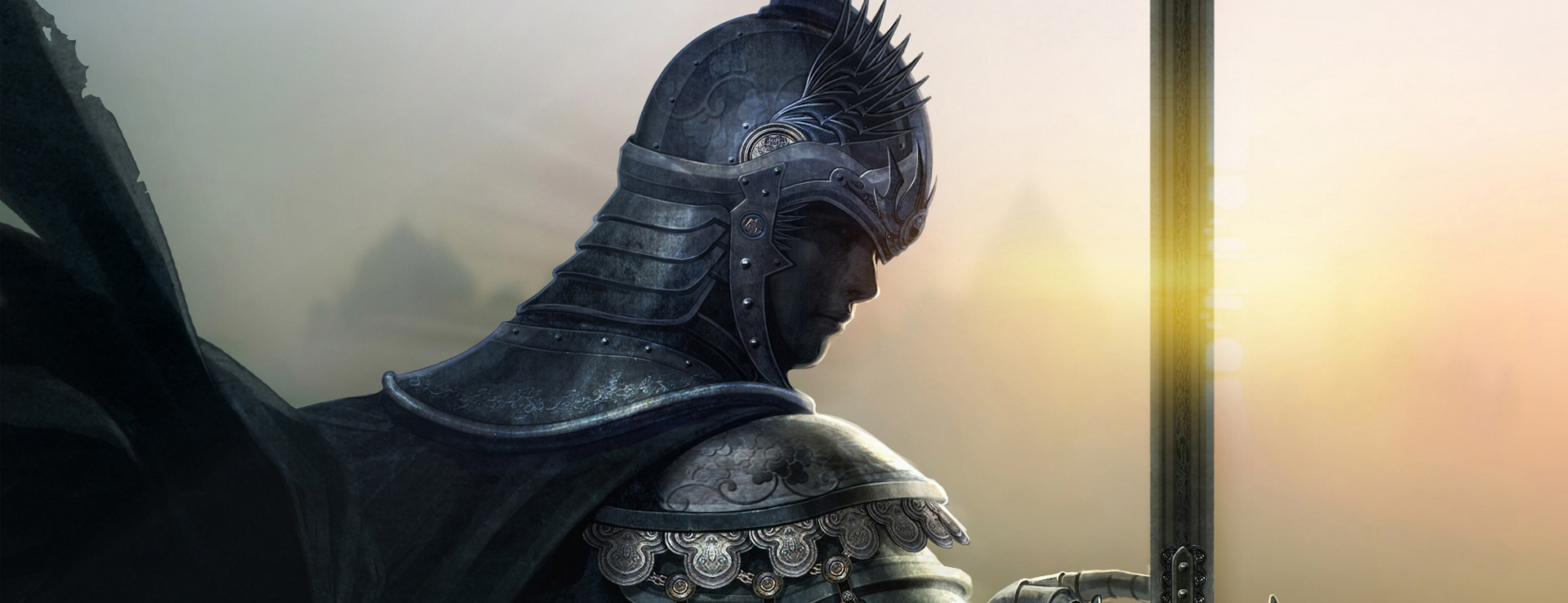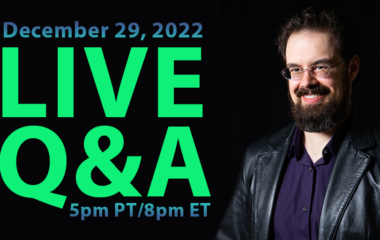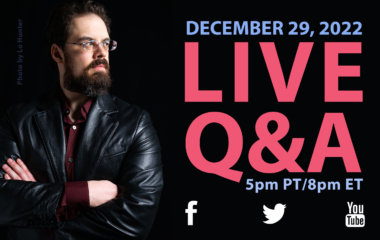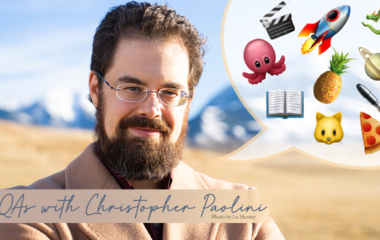
BOOK FIVE
And I know I’m pushing it here, but is there any chance you can explain what some of the plot might be in Book V?
Well, since you asked nicely — Book V will feature Angela’s backstory quite prominently and it *won’t* be about the two women she rolled the dragon bones for.
FUTURE STORIES
I was wondering if you were going to make a side series that focuses on one character in each book?
Angela is really the only character I’ve considered doing that with (aside from the two women whose fortune she told in Brisingr). I don’t think I’ll be writing full books about any of the other side characters.
We’re really rooting for Eragon to be in a relationship, whether it be Arya (hopefully) or another Rider/Elf. If it was someone else, would that kill any chance he has at a future with Arya?
If Eragon did date someone else, no it wouldn’t kill his chances with Arya. I didn’t really get into it in the series, but elves are much more polyamorous than humans or dwarves.
INHERITANCE CYCLE
I think Arya choosing to become queen goes against what we learned of her over the course of the series. Why would she have made that decision? Why would she walk away from Eragon?
We’re going to have to agree to disagree about Arya. I understand your points. However, I don’t see Arya as being the sort of person to walk away from what needs to be done, no matter how difficult it is. No, she doesn’t really want to be queen, but at the same time I can’t see her refusing the responsibility, even if comes at the cost of her own happiness. Also, as I’ve said before, she and Eragon are still just at the beginning of their lives. They’re going to live for many hundreds years more. Their story is far from over.
Why did Arya accept the role of the queen when she never really wanted to be in Ellesméra?
Arya is/was so devoted to the service of her people, she had the yawë glyph tattooed on her shoulder. Remember, the yawë symbolizes selfless service. She left Du Weldenvarden in the first place because of her differences with her mother and her need to serve. Well, now Galbatorix is dead, as is her mother, and it seems entirely reasonable that Arya would have no trouble returning to Ellesméra now. Also, keep in mind that as a Rider herself, Arya won’t stay in Du Weldenvarden as much as Islanzadí; she’ll be constantly flying out to participate in the events of the land.
What was the point of Roran trying to learn magic? Why did you show Roran struggling over finding out if he had the ability if he never ended up having it?
I wanted to show that Roran didn’t have any of the advantages that Eragon did. No dragon and no magic. He was just an ordinary human, albeit an excessively determined one. Besides, if you lived in a world with magic, wouldn’t you try to learn it?
I still don’t fully understand how the man with the dragon head in the Vault of Souls came to be?
Built with magic and craftsmanship. Basically, the Riders crafted a robot body that they augmented with magic and powered with Cuaroc’s Eldunarí.
What inspired you to kill King Galbatorix by showing him the hurt he had inflicted to the people all the years of his reign?
Hmm. Tough question. Basically, I knew that Galbatorix was stronger than Eragon. And he had to remain stronger than Eragon right up until the end if there was going to be any suspense as to whether Eragon was going to win. Therefore, I couldn’t have Eragon just overpower him, either with physical or mental force. Therefore, to beat Galbatorix, Eragon had to outsmart/out-think him. Ultimately, I wanted the victory to come from within Eragon. I wanted it to be a natural outgrowth of who Eragon was, so that it would be obvious that no one *but* Eragon could have beaten the king. Roran wouldn’t have thought to kill Galbatorix in that manner. Neither would have Nasuada or Arya. But Eragon— Eragon who was always questioning and searching and worrying about what was right and what was wrong—Eragon could. And that’s why I did what I did. A lack of empathy is what allows people to become monsters. Take that away—give them understanding—and they could never act as they had.
I doubt Galbatorix thought that Eragon would best him, so was blowing himself up instinctual or a contingency plan all along?
It was never his plan. It was his way of escaping the pain of understanding, completely and utterly, the pain he had caused others.
Did Galbatorix ever suspect that Murtagh might change who he was, or was he positive that Murtagh was too set in his ways and too much like his father, Morzan?
Galbatorix got sloppy and over-confident. He should have kept a closer eye on Murtagh during Murtagh’s visits to Nasuada. Even that wouldn’t have been Galbatorix’s downfall if Eragon hadn’t thought of the spell without words. It was just a very bad chain of events for poor Galby.
Bruce Poll asks: How does the spell that protects and dulls the swords for dueling work? It seems that if it follows the energy rules of the other spells that it would be a tremendous drain on the users energy.
The spell only really activates when an object comes within a certain range of the edge. And it only activates by/around the exact section of the blade involved. Deflection requires much less energy than you would think. By thickening the air above the blade, an almost frictionless surface can be created that quickly and easily redirects oncoming blows.
Can’t get enough? Check out our Q&A archive and FAQ page. Still want more? Submit your questions and follow the latest on Christopher’s Twitter and Facebook page.




